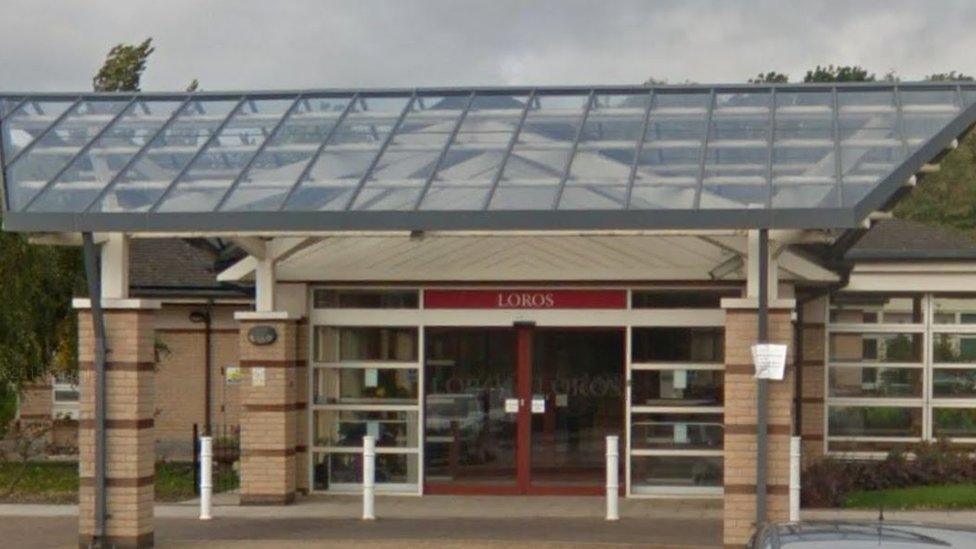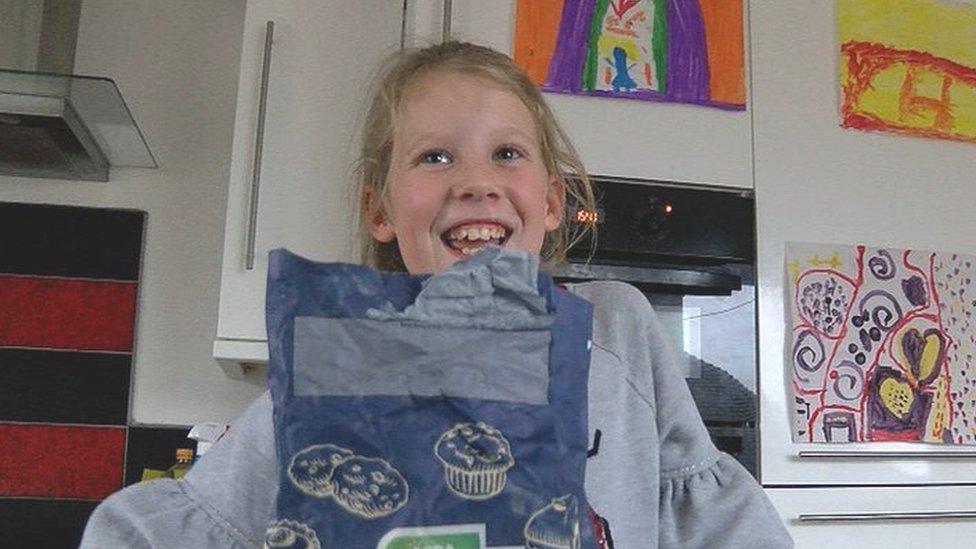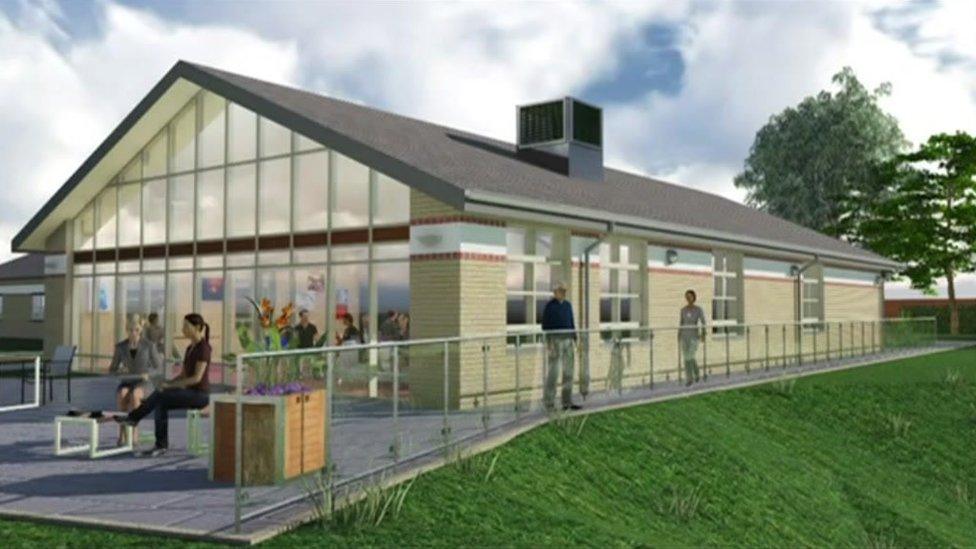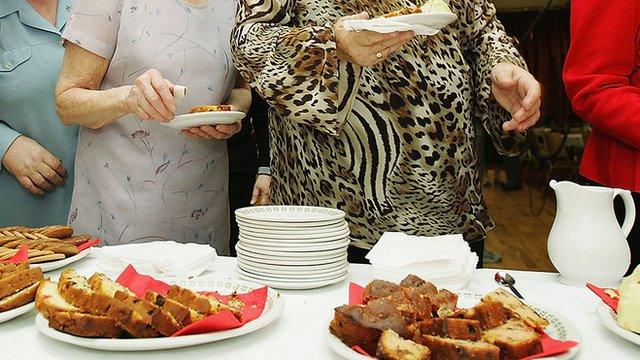WI 'banned' from baking cakes for Leicestershire hospice
- Published

Leicester City Council said those providing food to LOROS hospice regularly must use a registered kitchen
Women's Institute members have been told they cannot bake cakes for a hospice due to health and safety rules.
A Leicestershire hospice said its five star hygiene rating could be jeopardised by accepting home bakes.
Leicester City Council said it was not banning the WI from donating cakes, but those who provide food regularly must use a registered kitchen.
Meriel Godfrey, of Medbourne Women's Institute, said "no-one became ill from eating cakes from our donations".
She they were "very upset" by the move, adding: "I know they have to be very careful but we have been cooking cakes for years.
"We know how clean you have to be."

The WI said members have been baking cakes for LOROS for years
Ms Godfrey said registering the member's kitchens would be impractical.
"It would mean the involvement of quite a few health and safety people coming round to lots of different kitchens," she said.
"As far as we know, no-one became ill from eating cakes from our donations."
The news follows an Environmental Health inspection at LOROS hospice.
Helen Williams, from the hospice, said if it does not comply with the report, it could risk jeopardising its own food rating certificate.
She said: "We have loved receiving donations from so many generous supporters, just like the WI, but unfortunately this is a decision made by the local authority, not by our organisation."
A Leicester City Council spokesman said it was "not a ban on the WI providing cakes to LOROS".
He said: "In line with national Food Standards Agency rules, anyone preparing food for the public on a regular basis needs to register as a food premises with their local council. This includes charities and voluntary organisations.
"The national WI website also advises members that they may need to register. The process is simple and free of charge."


The Food Standards Agency said if you provide food occasionally and on a small scale, you do not need to be registered
The Food Standards Agency (FSA) regulations
There is no ban on organisations providing food for charity and community events
If you provide food occasionally and on a small scale, you do not need to be registered
You may have to register with your local authority if you provide food on a regular and organised basis, which helps to ensure that the food supplied is safe to eat, especially for those in vulnerable groups
If you are part of an organisation that supplies food on a small scale and you are unsure if you need to register, the FSA advises you to check with your local authority food safety team
If you do need to register, you may be inspected by your local authority and given a rating under the Food Hygiene Rating Scheme, external

The WI head office said it did not wish to comment directly on the case but confirmed it routinely advised members to contact their local authority in such matters.
You may also like:
Follow BBC East Midlands on Facebook, external, Twitter, external, or Instagram, external. Send your story ideas to eastmidsnews@bbc.co.uk, external.
- Published23 October 2018

- Published3 October 2016

- Published25 May 2015

- Published20 August 2013
